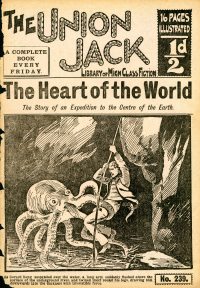I was intrigued by the back cover ad for the "Onrios Dream Book" and its fishy-sounding contest. While looking to see if the book was available online, I stumbled upon Papers by Command, vol 69, Parliament, House of Commons, an 1899 collection of legal proceedings. There was the whole story of the contest, the Onrios Dream Book, and other products, under the title Prosecution of Offences Acts--Reg. v. George Gabriel Wolff and others. (Fraudulent Prize Competition.)
I reproduce the article herewith (to use the parlance of the day). It's kind of long but it's a fascinating time capsule.
"During the year 1899 the Director thought it advisable to institute criminal proceedings in two cases against the promoters of fraudulent prize competitions. In each case the prize competition had been advertised very extensively in newspapers and periodicals, and the terms of the competition were such as to lead ignorant people to think that by a very small outlay they would secure the certainty of winning a substantial prize.
The first case in which the Director took proceedings was the case of Reg. v. George Gabriel Wolff, Sigmund Wolff, and Adolf Wolff. These persons, under the name of "The Petroline Company," had been advertising a preparation for the hair called "Petroline," the price of which was 1s. 6d., and, as part of the advertisement, they published a puzzle consisting of a few skeleton sentences, i.e., sentences in which only the first and last letters of each word were printed, and the number of other letters in the word indicated by asterisks.
Competitors were required to fill in the missing letters so as to make sentences referring to "Petroline." Some little ingenuity would have been required to have done this, but all necessity for the exercise of such ingenuity was apparently taken away by the publication as part of the same advertisement of what appeared to be a key to the missing words. Substantial prizes were offered, and thousands of competitors sent 1s. 6d. each and received a tin of a worthless compound, and when after running for a period of some months, the competition was brought to a close and the results were announced, it was found that the correct solution was quite different from that which the advertisement had deluded competitors into believing to be correct.
This was not the only competition carried on by these persons. They had carried on a similar one in connection with the sale of a book which they called the "Onrios Dream Book," another in connection with a preparation for the teeth called the "Dido Dentifrice," and several others in connection with an article known as "Egyptian Marking Ink." Valuable prizes, such as bicycles, gold watches, and silver tea services were offered for the correct solutions, but it was practically impossible that any competitor could give a solution agreeing with that which the promoters afterwards announced as the correct one.
By the aid of extensive advertising the competitions proved very lucrative to the promoters, and the business was still in full operation when the Director obtained a warrant for the arrest of the three Wolffs. The result of the prosecution was that they were all convicted at the Central Criminal Court on the 30th June 1899. George Gabriel Wolff, who was the father of the two other defendants, and who was also an undischarged bankrupt, was sentenced to ten months' imprisonment, Sigmund Wolff to four months' imprisonment, and Adolf Wolff, who was a mere youth, was bound over to come up for judgment if called on."



